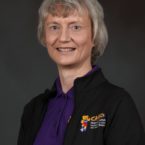Abstract
Background: Participation in physical activity is essential to the long-term health and development of all children. However, children living with cardiac conditions are typically not active enough to sustain positive health outcomes. Understanding the experiences of children living with congenital heart disease in community-based settings could help inform the physical activity counselling practices of clinicians. The current study explored the perceptions of 7- to 10-year-old children with moderate or complex congenital heart disease as they participated in a 10-week multisport programme.
Methods: Detailed field notes recorded the discussions and behaviours of 11 participants (45% female participants) each week during the programme sessions. Among those, four participants (50% female participants) were purposively selected to participate in preprogramme and postprogramme focus groups to gather more detailed accounts of their experiences.
Results: Four main themes surrounding physical activity were identified: (a) motivation, (b) self-efficacy, (c) peer influences, and (d) family influences. Although feelings of excitement and enjoyment towards physical activity were prevalent throughout the data (“I’m really excited … because I really like those sports”), participants also often felt frustrated, nervous, and fatigued (“I’m not very good at the skills”). Social inclusion with peers and family influences were meaningful reasons to engage in physical activity (“I really like playing games together”). Following the completion of the programme, participants emphasized their enjoyment of physical activity as a primary source of motivation, demonstrating an important shift from recognizing positive health outcomes ( “… it’s good for you”) towards more intrinsic sources of motivation (“… because it’s fun”).
Conclusion: Opportunities for physical activity that enhance positive experiences and build intrinsic motivation should be identified and promoted to children with congenital heart disease. Community-based programmes may also be an appropriate context for children with cardiac conditions to engage and maintain participation in physical activity through adolescence.
Researchers
-
Patricia Longmuir
Senior Scientist, CHEO Research Institute

